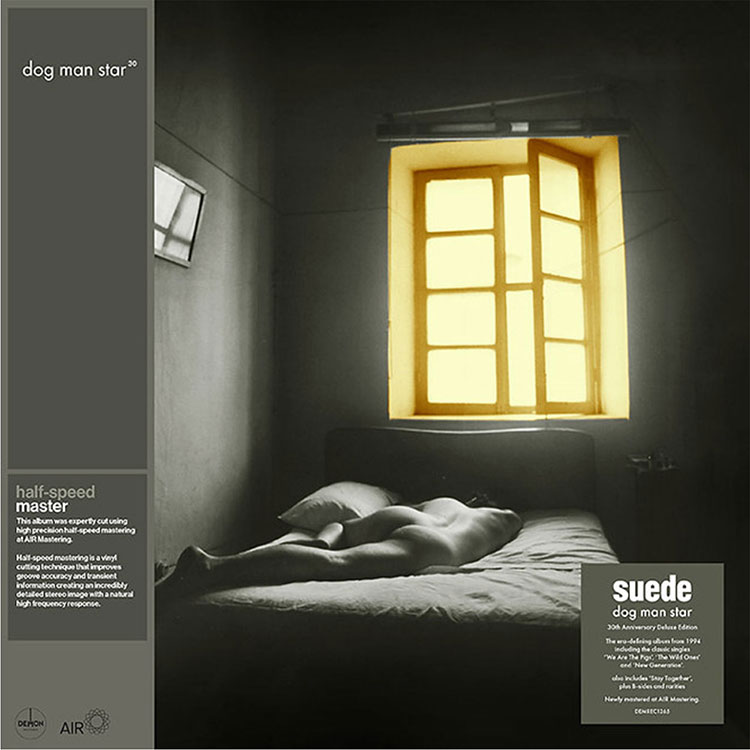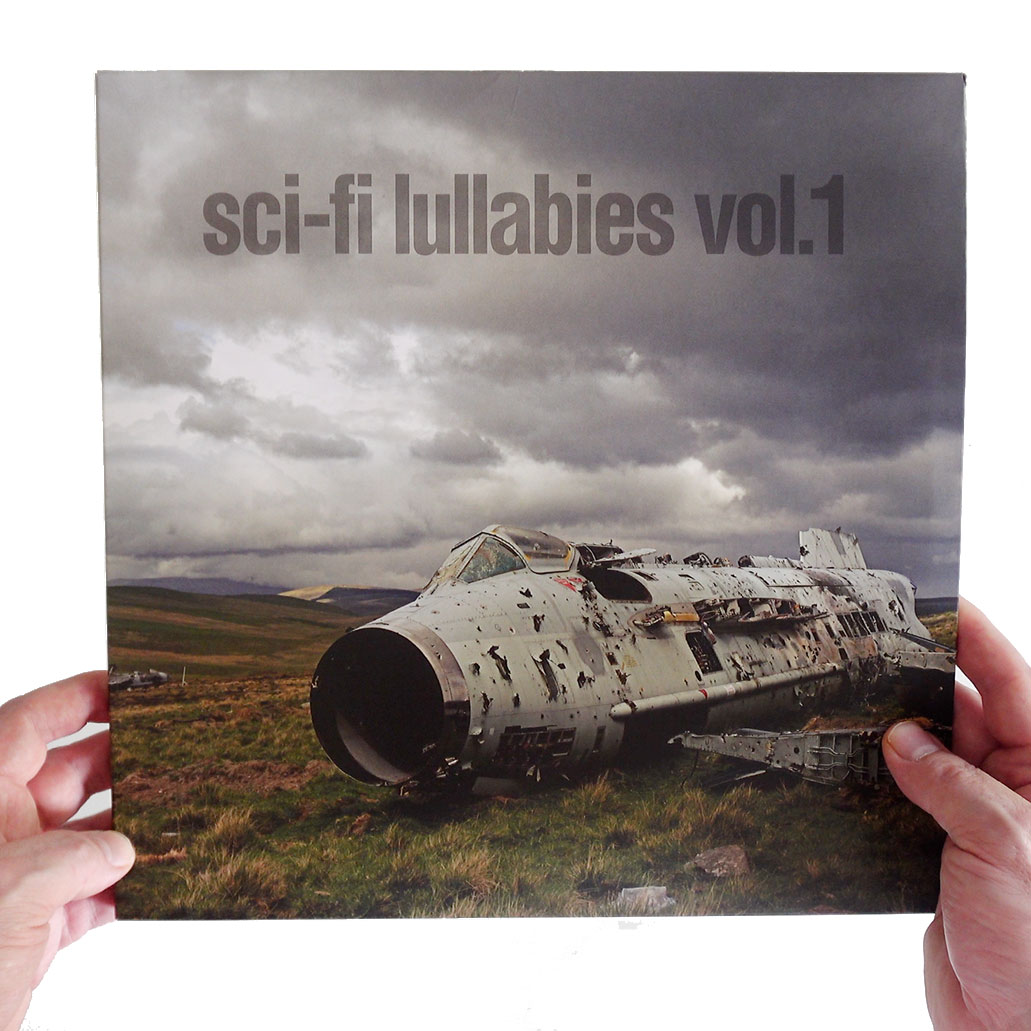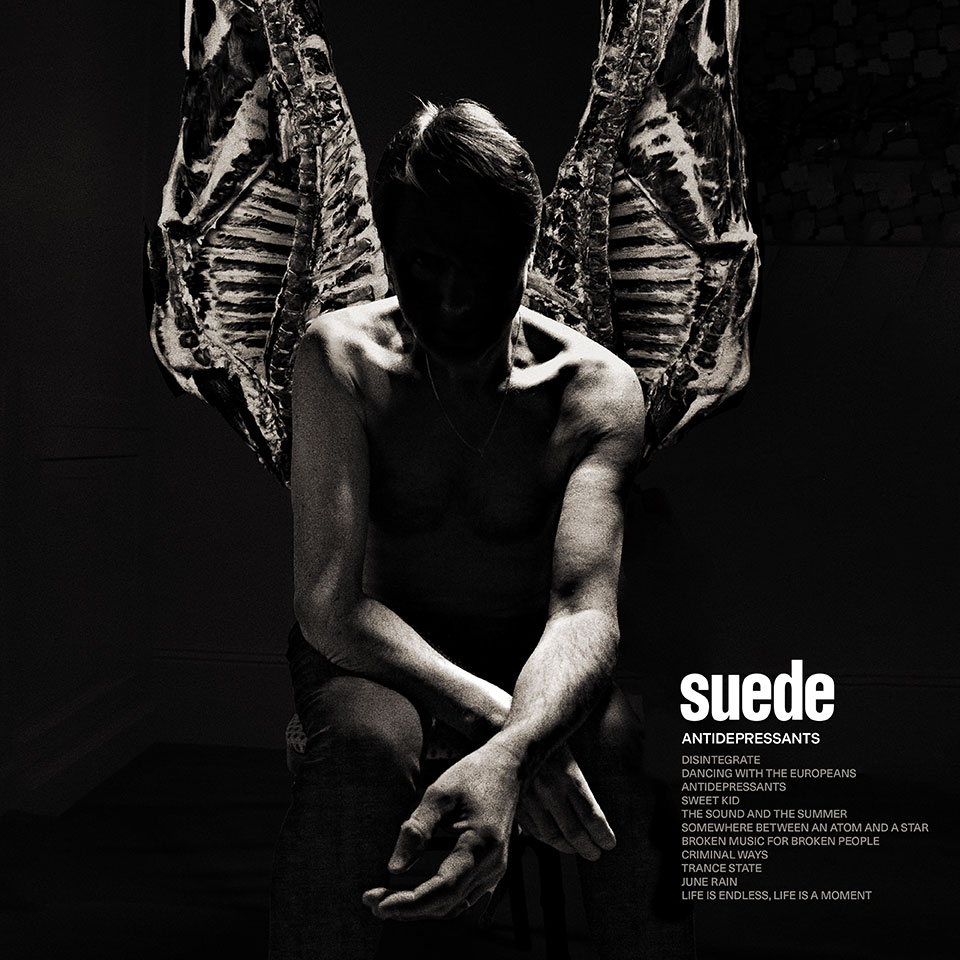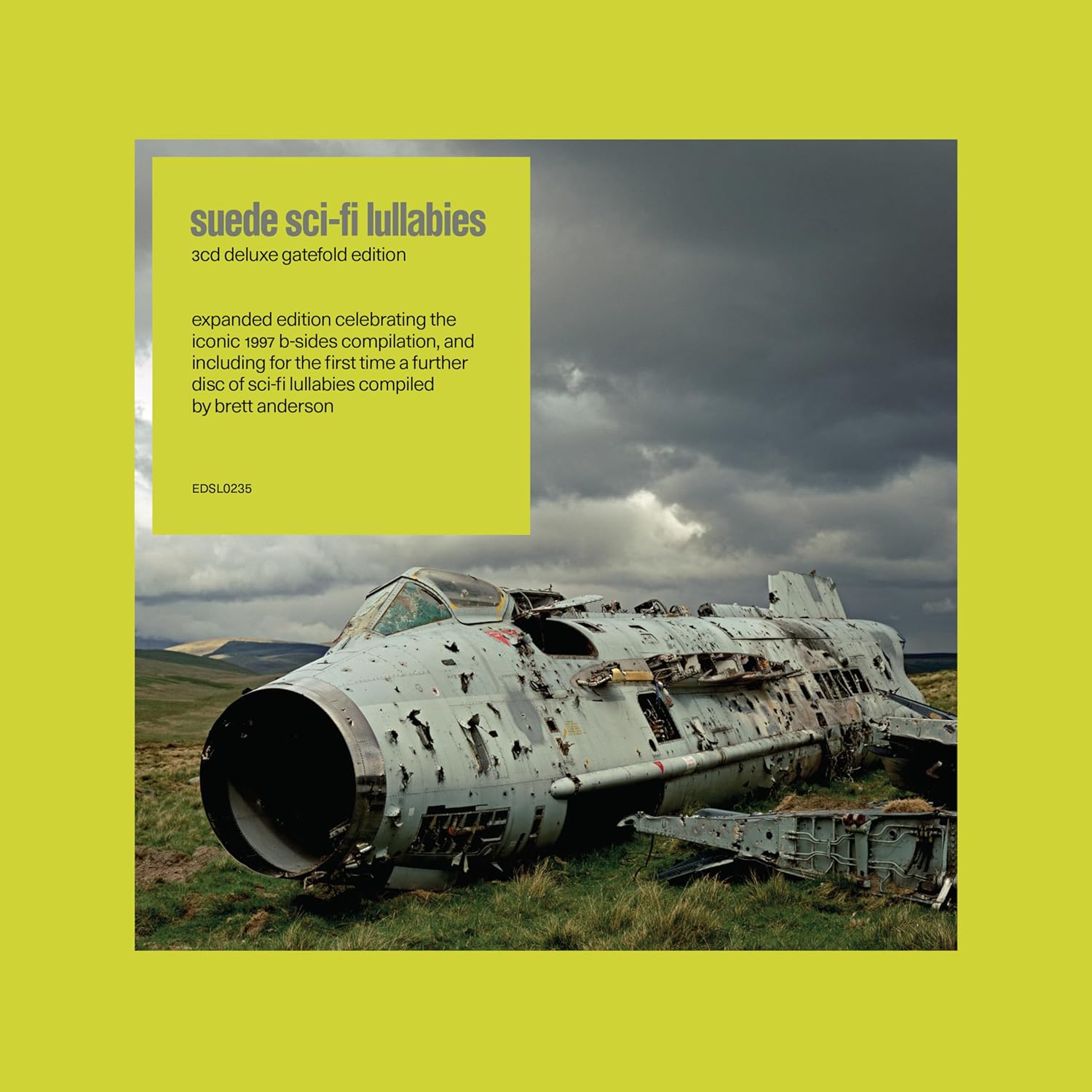Suede / Dog Man Star review
Suede’s 1994 album assessed on its 30th anniversary

Has there been a finer year, a more important year for British music than 1994? That probably depends on how old you are. 1967, 1972, 1977, 1988 and 2004, among many others, could probably stake a claim too. But for those of us who came of age in the era of britpop, alt rock and rave and the astonishing 90s British music boom, 1994 is the pivot point around which the world turned. There was music before 1994, and there was music after 1994, and they were not the same. It changed everything. It was the year that gave us Manic Street Preachers’ gripping, grim The Holy Bible, the year that gave us the exuberant, bullish joy of Oasis’ Definitely Maybe, the year that gave us Blur’s perfectly formed instant classic Parklife, the year of The Prodigy’s dark rave-up masterpiece Music for the Jilted Generation. Admittedly it was also the year of Whigfield and Rednex, when the best selling album was Bon Jovi’s greatest hits and Wet Wet Wet were at number one for what felt like an entire lifetime, but let’s not let the facts get in the way of a good story. 1994 was a hell of a year, when British music stretched and pulled in every direction to create a template for the rest of the decade, pulling us out of post-Cobain malaise. Those albums; Manics, Oasis, Blur and the Prodigy, formed four points of a star that we can really only recognise in retrospect, but one that now seems to blaze. An incredible, uniquely British identity that pulled from the past and the future, in hope and in hate to define something pretty damn incredible and totally ours.
Four points, of course, don’t make a star. You need five. That’s where Suede came in. Suede had gotten the jump on what was very soon going to be called ‘Britpop’ early with the glam pomp of their self-titled debut, which had given them a Brat Summer of their very own back in 1992. Brett Anderson had spanked himself with a microphone on live TV while Bernard Butler had thrashed and swished his way across the land in a succession of frilly shirts, selling themselves as the new Morrissey and Marr (Moz himself was less impressed – “he’ll never forgive God for not making him Angie Bowie” was his perfectly calculated take down). Four classic singles had been begat, the album went straight in at number one and snagged that year’s Mercury Prize for good measure. A new bratpop paradigm had, apparently, come. Mark E Smith declared it nothing but a “glam racket” on that year’s Fall single of the same name, but the rest of us were pretty impressed. All that work was supposed to pay off with Dog Man Star, the promised follow up that would see the quartet embrace their darker, grander and more intense side, something which they’d already hinted at on album tracks like ‘The Next Life’ and ‘Pantomime Horse’ and recent stand-alone single ‘Stay Together’.
It was a move that, if anything, was bolshier and brattier than simply redoing the sneering glammy punk of their debut. Anderson and Butler had huge ideas: to be musically grander and lyrically darker – more sexual, weirder, bigger: Mantras, orchestras, Bryon quotes, references to everyone from eden ahbez to the Pet Shop Boys, songs that pushed the ten-minute mark. A lead single given the name ‘We Are The Pigs’ — the least likely title for a hit song ever. And so it proved.
By the time the album came out, late in the Autumn, the landscape was completely wrong for it. Blur and Oasis, and Pulp and Elastica, had dragged the indie paradigm into something that sounded so much more fun than Suede’s knowingly dark and self-consciously grand vision of British rock. Oasis were about cigarettes and alcohol. Brett Anderson was peddling evocative ballads about gay sex and heroin (admittedly so were Blur, more or less, but they had the good sense to wrap their seedier leanings in disco lights). Blur were touting “British Image Number One”, Noel Gallgher was getting the Union Jack spray painted on his guitar, and here was Brett declaring “I don’t care for the UK tonight”. The whole thing was deliberately, obnoxiously and gloriously out of step. That was the whole point. Suede had taken one look at britpop and said “bugger that”. The album came out to rapturous reviews, but a disinterested public had already moved on to more immediate gratification. Dog Man Star peaked at number three and then vanished.
It was a body blow to a band already thoroughly bloodied. Butler, grieving his recently-passed father, and always the black sheep of Suede anyway, had departed the band mid-recording. He’d already distanced himself from his bandmates who were both struggling with his broader musical visions and who, frankly, didn’t think he was very much fun anyway, and he loathed what producer Ed Buller was doing to his songs. As far as Bernard Butler was concerned, the only person suitable to finish the album in the producer’s chair was, well, Bernard Butler. When he issued an ultimatum – fire Buller or look for a new guitarist – the rest of the band, tired of his attitude, called his bluff. Butler recorded a few final guitar parts, alone in a totally different studio, and vanished from Suede forever, emerging the following year with David McAlmont and the astonishing single ‘Yes’. The remaining members, meanwhile, found a new guitarist (17-year-old Richard Oakes) and pushed themselves through the relentlessly grueling process of promoting an album people didn’t care about (including a memorably intense French tour with a similarly bruised and bloodied Manic Street Preachers). The experience would galvanise Suede, hammering them into a closer unit and setting them on the path to record the sharp, swaggering Coming Up, an album that would put them back on top.
It could, on paper, have left Dog Man Star the overlooked and unloved child in the Suede family. Their debut had been a classic, Coming Up was the ‘return to form’. That means the record that bridged them must be a curio at best. And so it would be… if it wasn’t for the fact that Dog Man Star is incredible.
And it is incredible. It’s the sound of a band pushing themselves, quite literally, to breaking point and then going further and actually breaking themselves in the process, and in doing so, creating something truly extraordinary. It’s an album that demands your full attention, rewarding repeated listens with new details and hidden depths. An album that rewards good headphones. An album that can shape itself around your mood.
Though he didn’t oversee the finished product (and has complained about the sound of the record ever since) Butler’s musical ambitions are still the heart of the album, though they’re tempered for the best (whether he likes it or not) by Buller, Anderson, bassist Mat Osman and drummer Simon Gilbert reigning in his excesses in his absence. It’s full of moments where the one countering the other sparks astonishing results.
Like ‘The Wild Ones’. Anderson himself rates the ‘The Wild Ones’ as Suede’s best song, and frankly, he should know – a sweeping ballad of doomed romance as much about addiction and obsession as it is about love and sex, Anderson’s writing is at its most evocative here, painting vivid pictures with just a few well-chosen words. “We’ll be the wild ones, running with the dogs today,” he croons, somehow managing to sound both triumphant and desperately sad at the same time.
Like ‘The Asphalt World’, the album’s sprawling centerpiece, a masterpiece of tension and release. Butler’s playing here is astonishing, searing and bombastic and subtle and understated within a few bars.
In the case of both songs, Butler’s plans were even grander. Included on the 30th anniversary reissue are the original seven and 12 minute edits respectively – neither quite work. Suede needed Butler to push them to those heights, but the songs also needed him to accept editing with good grace. Perhaps that’s why he’s never been given the chance to remix the whole thing, something that must have been considered as the album hits these key anniversaries.
Dog Man Star is full of those moments of graceful ambition and decadence – ‘The Two of Us’ strips everything down to Anderson’s reverby croon and raises absolute goosebumps. ‘Black & Blue’ riffs sweetly on Nat King Cole’s ‘Nature Boy’, Anderson in storytelling mode, all space and clarity and doom and gloom. ‘Still Life’ is pure, knowing, self-conscious orchestral indulgence. It swells and swells and balloons and absolutely delights in its own melodrama. Apparently it’s one of the points where Osman and Gilbert had their doubts, and this is probably the song that caused Rolling Stone to call the album “one of the most pretentious ever released by a major label.” It’s a fair point, but its pretensions are part of its appeal. This is a record shooting for a point beyond the universe. Anderson and Butler both, in different ways, had their eye on escaping this reality. They earn that bombastic finale.
This is also a record that’s smart enough to stay on the ground sometimes. It’s easy to get swept up in the decadence and drama and forget that Dog Man Star has some nailed-on, punchy rockers. The glam riff that powers ‘This Hollywood Life’ is an all-timer. The swooping chorus of ‘We Are The Pigs’ is pure Suede. It’s the band distilled. The bottom drops out of your stomach from it. It’s up there with anything on Suede or Coming Up. ‘New Generation’ is a belter with a terrace anthem energy that could have sat on Definitely Maybe itself, though Butler and Osman’s musical dexterity elevates it substantially above the meat and potatoes Gallagher sound. Suede were rejecting Britpop while proving they could still lead its field if they wanted to.
And it all works together so well. Despite the rough birthing. You can hear the tension in every note, but somehow it works in the album’s favour. There’s a desperation to these songs, a feeling that this might be the last chance to make something truly great.
Dog Man Star is the sound of a band throwing everything at the wall and, miraculously, having it all stick. It’s an album that takes risks, that dares to be difficult, that refuses to play it safe. It’s a piece of art that rewards patience, that reveals new layers with each listen. It’s the kind of record that you can spend years unpacking, finding new favorite moments and hidden details. In a career full of highs, it stands as Suede’s grandest achievement – a level of remarkably realised ambition they wouldn’t get near again until 2018’s The Blue Hour, and a glimpse of where they might have gone if circumstances had been different. That they did it all on their second album is frankly astonishing. It ended Suede mark #1 on an extraordinary high, not despite its difficult birth but because of it.
And these days it’s recognised as such. Even by the time Suede mark #2 folded in on themselves in 2003, Dog Man Star was being talked up as an overlooked classic by fans. When the band reformed the Coming Up line-up in 2010 for a supposedly one-off gig at the Albert Hall, ‘The Asphalt World’ in all it’s grandeur, a stark and shivering ‘The Two of Us’ and a near perfect performance of ‘The Wild Ones’ were the highlights of the night – moments so powerful (along with a version of ‘Metal Mickie’ that fair took the roof off) they helped create the momentum for a third phase of the band’s career which has now lasted longer than the first two combined. Like the Manics’ contemporary Holy Bible, it’s an album that could have been the band’s final statement, beloved but underperforming commercially, but instead has become their enduring classic and a definitive example of this version of Suede.
30 years on, we’re given the chance to appraise Dog Man Star all over again. And while this reissue adds nothing new to its story – aside from some upgraded artwork and a welcome half-speed remaster for the vinyl edition, everything here was present on the 2011 reissue or the 20th anniversary box set – it’s still a joy to dive into the layers of an album that, three decades later, remains a fascinating, emotional, dark and bombastic masterpiece.
Review by Marc Burrows. The Dog Man Star 30 reissue is out on 18 October 2024.
Compare prices and pre-order

Suede
Dog Man Star 30 - 3CD set
Compare prices and pre-order

Suede
Dog Man Star 30 - 2LP half speed vinyl

|
|
||||||||||||||||||||||||||||||||||||||||||||||||||||||||||||||||||||||||
Compare prices and pre-order

Suede
We Are The Pigs - seven-inch picture disc

|
|
||||||||||||||||||||||||||||||||||||||||||||||||||||||||||||||||||
Tracklisting

Dog Man Star Suede / 30th anniversary
-
-
CD 1
- Introducing The Band 2.37
- We Are The Pigs 4.20
- Heroine 3.22
- The Wild Ones 4.50
- Daddy’s Speeding 5.21
- The Power 4.31
- New Generation 4.37
- This Hollywood Life 3.50
- The 2 Of Us 5.45
- Black Or Blue 3.48
- The Asphalt World 9.25
- Still Life 5.19
-
CD 2
- My Dark Star 4.24
- The Living Dead 2.48
- Stay Together [long version] 8.29
- Killing Of A Flash Boy 4.05
- Whipsnade 4.18
- This World Needs A Father 3.53
- Modern Boys 4.08
- Eno’s Introducing The Band 16.05
-
CD 3
- La Puissance (The Power) 1.23
- The Living Dead [piano version] 2.47
- We Believe in Showbiz [unreleased at time of recording] 3.47
- Still Life [orchestral version] 5.13
- The Wild Ones [original unedited version] 7.16
- The Asphalt World [original unedited version] 11.26
- Stay Together (Single Version) 4.22
- NME Flexi 3.55
-
CD 1

 Reviews
Reviews

 SDEtv
SDEtv


By Marc Burrows
48